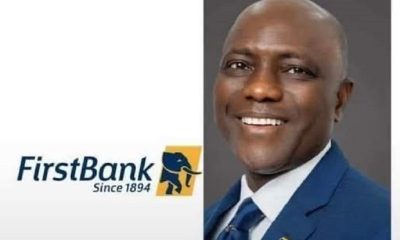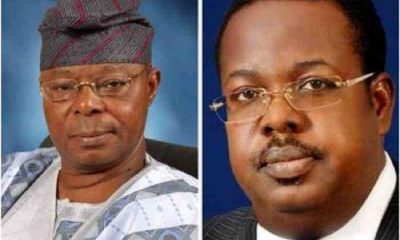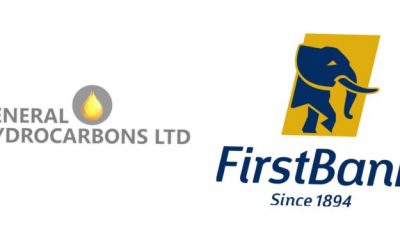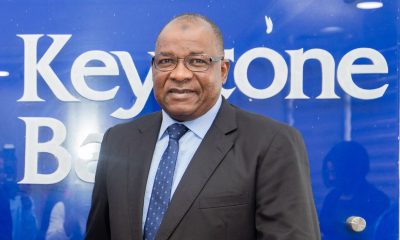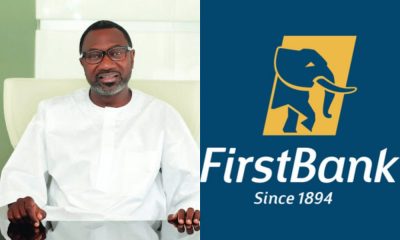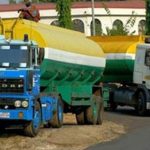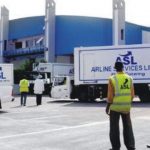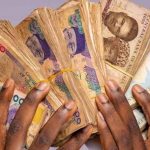Banking
CBN Begs Court Not to Compel First Bank to Pay N123b Debt
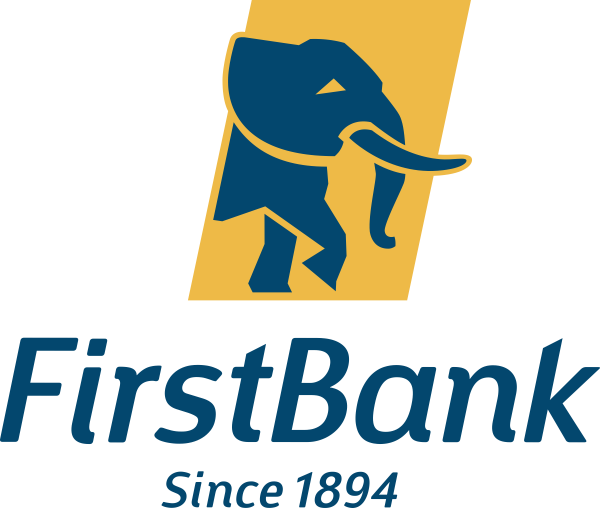
By Modupe Gbadeyanka
A Federal High Court sitting in Owerri, Imo State, has been urged by the Central Bank of Nigeria (CBN) not to make absolute the temporary garnishee order it granted six chiefs representing the Ogoni community, compelling it (CBN) to pay the sum of N122.53 billion on behalf of First Bank of Nigeria Limited (First Bank).
According to ThisDay, CBN’s lead counsel, Professor Fabian Ajogwu (SAN), while responding to a new suit filed by the judgment creditors (Ogoni chiefs) seeking to commit First Bank, its chairman, Mrs Ibukun Awosika, and Managing Director, Dr Sola Adeduntan, to prison for alleged contempt for not paying them the sum of over N122.53 billion, stated that making the order absolute and compelling the CBN to pay out the huge sum would be against the interest of justice because the matter was still pending at the Supreme Court.
There are concerns that compelling the CBN to pay the N122.53 billion from First Bank’s funds domiciled with the central bank could have far-reaching consequences for Nigeria’s oldest and biggest lender by assets and deposits, and a systemic impact on the rest of the financial system and wider economy.
But in a statement yesterday, the bank said it was a responsible and law abiding corporate citizen with the capacity and character to, on a consistent basis, meet its obligations as and when due.
The case, which started in 1991, was originally instituted at the Rivers State High Court, Nchia Division, by six indigenes of Ogoniland against the Royal Dutch Shell Plc, Netherlands, Royal Dutch Shell Plc, United Kingdom, and Shell Petroleum Development Company (SPDC) of Nigeria Limited over alleged oil spills that occurred when Shell operated in the community.
The plaintiffs alleged that it was the same case that led to the Ogoni struggle championed by the late Mr Ken Saro Wiwa.
Judgment was eventually entered in their favour against Shell by the state High Court, whereupon the defendant appealed against the said judgment.
However, in 2001, a fresh suit was commenced by some representatives of the Ogoni people before the Federal High Court in Port Harcourt presided over by Justice Ibrahim Buba claiming N17 billion and interests on the said sum for the losses allegedly caused by the oil spills.
Justice Buba, after listening to the submissions of the parties in the suit, in his judgment in 2010, awarded N17 billion to the representatives of the Ogoni people.
The court equally granted the Ogoni chiefs 25 per cent interest charge on the principal sum of about N17 billion.
SPDC then appealed against the judgment and applied for a stay of execution of the judgment pending the appeal.
As a condition for granting the stay of execution, the court required Shell’s bankers, First Bank, to provide a guarantee of the judgment sum.
This condition was complied with. But Shell’s appeal failed at the Court of Appeal on technical grounds, ostensibly because it filed its processes out of time and without regularising them.
When the oil giant proceeded to the Supreme Court, it also failed as the court upheld the decision of the Court of Appeal.
Accordingly, last December, the judgment creditors (Ogoni representatives) commenced garnishee proceedings at the Federal High Court in Owerri presided over by Justice Lewis Allagoa.
They urged the CBN to pay them N122.53 billion out of First Bank’s account in its custody.
THISDAY gathered that they calculated the principal sum of N17 billion and the accrued 25 per cent interest charge per annum to arrive at the sum of N122,533,403,392.
In January, Justice Allagoa granted them a temporary order (garnishee nisi) ordering the CBN to pay them the sum from First Bank’s account with it.
The judgment creditors, Chief Isaac Osaro Agbara and five others (representing the Ogoni community) are represented by Mr. Lucius Nwosu (SAN) as the lead counsel, while First Bank is represented by Chief Wole Olanipekun (SAN) as lead counsel.
Shell, against whom the judgment was made and who wants to be joined in the garnishee proceedings, having filed a motion for joinder, is represented by Mr Wale Akoni (SAN), while the garnishee, CBN, which is allegedly in custody of the N122.53 billion is represented by Ajogwu.
When the suit came up for hearing before Justice Lewis-Allagoa of the Federal High Court in Owerri last Friday, Ajogwu, filed a motion before the court to set aside the temporary garnishee order on the grounds that the CBN was not indebted to and does not have the private funds of First Bank in its custody.
However, Akoni’s motion for Shell to be joined in the garnishee proceedings could not be taken.
Ajogwu contended that the consent of the Attorney General of the Federation was not obtained to attach the money alleged to be in the custody of a public officer, contrary to the Sheriffs and Civil Process Act.
He also argued that the funds alleged to be in the custody of the CBN could only be statutory funds, which cannot be attached for payment of judgment sums.
He further averred that in view of the several suits and appeals in the matter, the proceedings were an abuse of the court’s process and amounted to forum shopping.
In his motion, counsel to First Bank, Olanipekun, also asked the court to set aside the temporary garnishee order.
He argued that the court lacks the jurisdiction to hear the case, and therefore asked the court to transfer the case to Abuja or Lagos.
But in his response, Nwosu stated that the Ogoni judgment creditors were entitled to the benefit of their judgment and opposed all motions by the CBN, Shell and First Bank.
After hearing all the parties in the case, Justice Allagoa adjourned the matter to April 11, 2018, for the continuation of hearing.
But in a statement sent to THISDAY yesterday, First Bank’s Head of Marketing and Corporate Communications, Mrs Folake Ani-Mumuney, said her organisation was a responsible law abiding citizen with the capacity and character to meet its obligations as and when due.
She said the events culminating in the issuance of the bank guarantee at the request of Shell and all the lawsuits arising from the case were before the courts.
She expressed confidence that the courts would dispense justice in the cases in line with constitutional obligations.
According to her, “First Bank is a responsible and law abiding corporate citizen with the capacity and character to, on a consistent basis, meet its obligations as and when due.
“The events culminating in First Bank’s issuance of the said bank guarantee at the request of Shell Petroleum Development Company Limited as well as all matters arising therefrom and associated therewith are subject matters of different lawsuits including Suit Nos. FHC/OW/CS/C4/2017, FHC/L/NJR/1/2018 and Appeal Nos. SC/511/2017 and SC/731/2017 which are ongoing.
“We are confident that the various courts will dispense justice in the cases in line with their constitutional obligations.”
Also, a source conversant with the case explained that First Bank’s appeal was still at the Supreme Court and hearing on the case will come up on October 16, 2018.
He said irrespective of the fact that the Supreme Court had not ruled on the case, the counsel to the Ogoni chiefs, Nwosu, has been pushing for First Bank to honour the guarantee.
He said First Bank, however, has maintained that the parties have the right to exhaust their rights in law and that includes going to the Supreme Court.
According to the source, this was another attempt by Nwosu to stampede the bank into paying the N122.53 billion.
Opening up on other tactics employed by the counsel to the Ogoni chiefs to compel First Bank to cough up the sum despite the fact that the matter is still being adjudicated, he said Nwosu had also petitioned the two legislative chambers of the National Assembly.
“Not stopping at that, he has petitioned the central banks of other countries where First Bank has operations; he has initiated winding up proceedings against the bank in Lagos and Abuja which he discontinued; he took an action against First Bank at the Federal High Court in Port Harcourt which he abandoned; he obtained the garnishee at the Federal High Court in Owerri seeking to attach First Bank’s funds at the CBN; then last week he filed contempt proceedings against the chairman and managing director of the bank.
“All these he has done irrespective of the case at the Supreme Court. But First Bank, from what I can tell, is confident in the judiciary to do the right thing,” he said.
Banking
Stanbic IBTC Bank Tasks CEOs With ‘There Is More’ Campaign
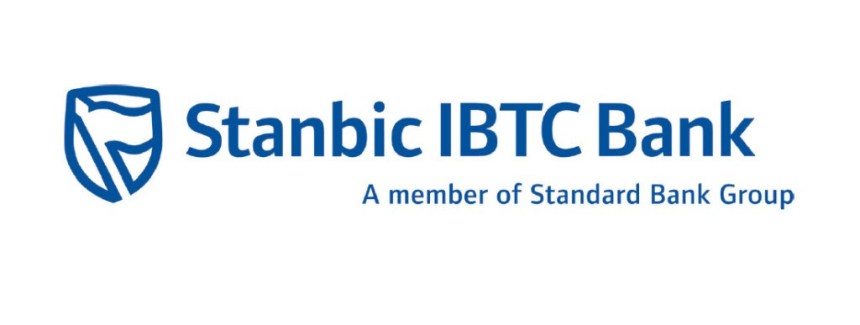
By Aduragbemi Omiyale
An initiative aimed to challenge business leaders and innovators to transcend current horizons has been introduced by Stanbic IBTC Bank through a thematic campaign known as There is Possible, Then There is More.
The idea is to a mindset of amplified possibility, sustained growth, and transformative partnerships, with Stanbic IBTC Bank positioned as a pivotal enabler.
With this campaign, Stanbic IBTC Bank is positioning itself as a trusted ally for Nigerian CEOs who want to do more, become more, and achieve more.
The Executive Director for Business and Commercial Banking at Stanbic IBTC Bank, Mr Remy Osuagwu, said, “As a bank, our mission is to not only meet the financing needs of Nigerian CEOs, but to inspire them to reach for more.
“We understand the challenges they face and the aspirations they hold, and we are equipped to support their ambitions, and extend them even further thereby, helping them to achieve exponential growth.”
He emphasised that, “This campaign is evidence of our commitment to being more than just a bank; we want to be the partner that propels our customers beyond their goals.
“We empower our clients with the tools and resources necessary for success by fostering collaboration and mutual growth and this proactive approach underscores our commitment to supporting business leaders and inspiring them to dream bigger and achieve greater heights in their respective industries.”
Business Post reports that the campaign officially debuted with a striking teaser, with An Open Letter to All CEOs on key digital platforms, digital out-of-home screens, and social media feeds. For days, the public speculated. This week, the letter was finally revealed—and with it, a most human and resonant message.
The Open Letter to CEOs is more than just an advertising creative campaign; it is a genuine call to action.
In it, Stanbic IBTC Bank acknowledges the resilience and achievements of Nigerian business owners even in the face of adversity. But it also dares to ask: What more could be achieved with the right support, partnership, and financial foresight?
Overall, Stanbic IBTC Bank’s vision reflects a deep understanding of the crucial role that financial institutions play in the broader economic ecosystem—one where banks serve as catalysts for growth and achievement.
From trade financing to investment advice, capacity development to transactional banking, Stanbic IBTC Bank offers a suite of solutions designed specifically to meet the evolving needs of today’s CEOs — from start-ups and SMEs to established corporations and multinationals.
Banking
Access Bank’s Acquisition of National Bank of Kenya Suffers Setback
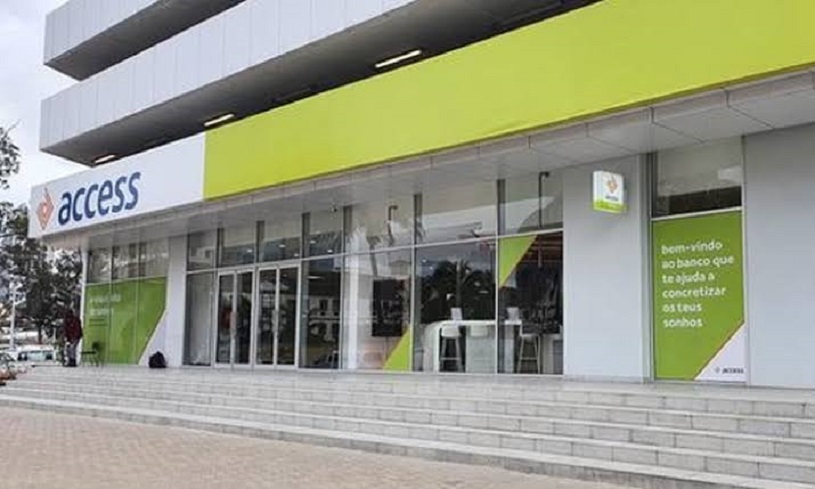
By Adedapo Adesanya
The acquisition of the National Bank of Kenya by Access Bank Plc may linger a bit because securing the approval of the Central Bank of Nigeria (CBN) may be a challenge despite its Kenyan counterpart giving its blessings to the transaction.
Recall that on Monday, the Central Bank of Kenya (CBK) and the National Treasury approved the deal which will see KCB sell 100 per cent of NBK at 1.25 its book value to the Nigerian lender which had both signed an agreement for the purchase in March 2024.
Though the CBK has given its approval, the CBN also needed to authorise the acquisition for it to be completed.
Reports suggest the deal appears to have halted as the Nigerian apex bank flagged it for regulatory breaches and failure to receive proper notice.
It also said there were missing disclosures and a non-compliant structure and has asked both parties to resubmit the deal.
This development put a snag in Access Bank’s second acquisition in Kenya for the Nigerian bank after it bought Transnational Bank Limited in 2019.
Access Bank has plans to double the share of assets outside its home market by 2027 and has seen deal build on the bank’s growing operations in the Democratic Republic of Congo and Rwanda.
However, one of these may not happen as the CBN reportedly wants Access Bank to exit the Democratic Republic of Congo and shut down its London office as part of broader efforts to streamline Nigerian banks’ foreign operations.
Access Bank has been on a Mergers and Acquisition (M&A) streak across the continent, acquiring Grobank in South Africa, BancABC in Botswana and Mozambique, Diamond Bank in Nigeria, and Finibanco Angola in line with the visions of its late founder, Mr Herbert Wigwe.
It also has plans to buy Standard Chartered subsidiaries in Cameroon, The Gambia, and Tanzania (it has already completed acquisitions in Angola and Sierra Leone) as well as an 80 per cent stake in Finance Trust Bank (FTB) of Uganda which was announced in January 2024 and has gotten partial approval from Uganda’s financial authorities but has pending approval from the CBN and Bank of Uganda.
At the time of this report, both the CBN and Access Bank could not be reached by Business Post for comments on this development.
Banking
First HoldCo Lists Additional N149.6bn Shares on Stock Exchange
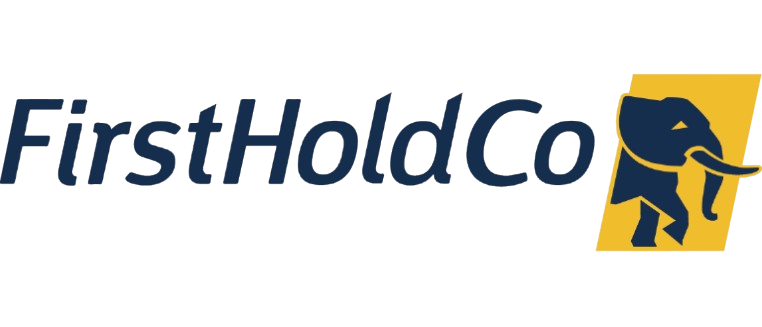
By Dipo Olowookere
Additional shares of First HoldCo Plc worth about N149.6 billion have been listed on the Nigerian Exchange (NGX) Limited.
The fresh equities were introduced to the stock exchange on Monday, April 7, 2025, to increase the total issued and fully paid-up share of the financial services provider to 41,877,841,591 ordinary shares of 50 Kobo each.
Before now, First HoldCo had a total of 35,895,292,792 ordinary shares of 50 Kobo each but this increased with the addition of another 5,982,548,799 ordinary shares of 50 Kobo each.
The new equities were from the rights issue of the organisation, which saw shareholders getting one new stock for every existing six stocks held at the close of business on Friday, October 18, 2024.
The exercise, which was oversubscribed by 25.46 per cent, was part of the strategies to meet the new minimum capital requirement of the Central Bank of Nigeria (CBN) for its banking business, First Bank of Nigeria Limited.
The banking arm of First HoldCo is in the tier one category in Nigeria and it is required to have at least N500 billion as its capital base because of its operations outside the country.
Business Post reports that the fresh 5,982,548,799 ordinary shares of First HoldCo listed on the bourse last Monday was at a unit price of N25, amounting to N149.6 billion.
Confirming this development, the NGX in a notice said, “Trading licence holders are hereby notified that additional 5,982,548,799 ordinary shares of 50 Kobo each at N25.00 per share of First HoldCo Plc were on Monday, April 7, 2025, listed on the daily official list of Nigerian Exchange (NGX) Limited.
The additional shares listed on NGX arose from First HolCo Plc’s rights issue of 5,982,548,799 ordinary shares of 50 Kobo each at N25.00 per share
“With the listing of the additional 5,982,548,799 ordinary shares, the total issued and fully paid-up shares of First HoldCo Plc have now increased from 35,895,292,792 to 41,877,841,591 ordinary shares of 50 Kobo each.”
-

 Feature/OPED5 years ago
Feature/OPED5 years agoDavos was Different this year
-
Travel/Tourism9 years ago
Lagos Seals Western Lodge Hotel In Ikorodu
-

 Showbiz2 years ago
Showbiz2 years agoEstranged Lover Releases Videos of Empress Njamah Bathing
-

 Banking7 years ago
Banking7 years agoSort Codes of GTBank Branches in Nigeria
-

 Economy2 years ago
Economy2 years agoSubsidy Removal: CNG at N130 Per Litre Cheaper Than Petrol—IPMAN
-

 Banking2 years ago
Banking2 years agoFirst Bank Announces Planned Downtime
-

 Sports2 years ago
Sports2 years agoHighest Paid Nigerian Footballer – How Much Do Nigerian Footballers Earn
-

 Technology4 years ago
Technology4 years agoHow To Link Your MTN, Airtel, Glo, 9mobile Lines to NIN



